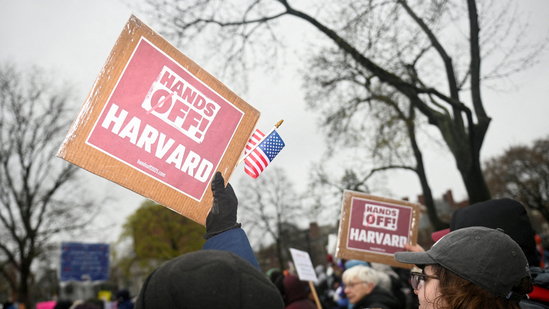Trump Admin Hits Back at Harvard by Freezing $2.2 Billion in Funding
In a significant escalation of tensions between the federal government and higher education institutions, the Trump administration has frozen over $2.2 billion in federal grants and $60 million in contracts allocated to Harvard University. This action follows Harvard’s refusal to comply with a series of federal mandates aimed at addressing antisemitism and enforcing civil rights policies on campus.
Federal Demands and Harvard’s Response
The Department of Education’s Joint Task Force to Combat Anti-Semitism had issued directives requiring Harvard to implement several measures, including:
-
Eliminating Diversity, Equity, and Inclusion (DEI) programs
-
Transitioning to merit-based admissions and hiring practices
-
Banning face masks during protests
-
Cooperating with immigration authorities to screen international students.
Harvard President Alan Garber responded firmly, stating that the university would not “surrender its independence or relinquish its constitutional rights.” He emphasized that no government should dictate the academic and operational decisions of private institutions.

Broader Implications and Reactions
The funding freeze is part of a broader initiative by the Trump administration to scrutinize and, in some cases, penalize universities for perceived failures in addressing antisemitism and upholding civil rights. Other institutions, such as Columbia University, have faced similar pressures, with Columbia complying with federal demands to avoid losing $400 million in funding.
Former President Barack Obama criticized the administration’s actions, describing the funding freeze as “ham-handed and illegal.” He praised Harvard for standing up for academic freedom and resisting political overreach.
Legal Challenges and Academic Freedom
In response to the funding freeze, a group of Harvard professors has filed a lawsuit against the Trump administration, arguing that the federal government’s actions violate legal procedures under Title VI of the Civil Rights Act. The American Association of University Professors has also condemned the administration’s approach, viewing it as an infringement on academic freedom and institutional autonomy.
As the situation develops, Harvard and other academic institutions are navigating the complex intersection of federal oversight, civil rights enforcement, and the preservation of academic independence.


Comments are closed, but trackbacks and pingbacks are open.